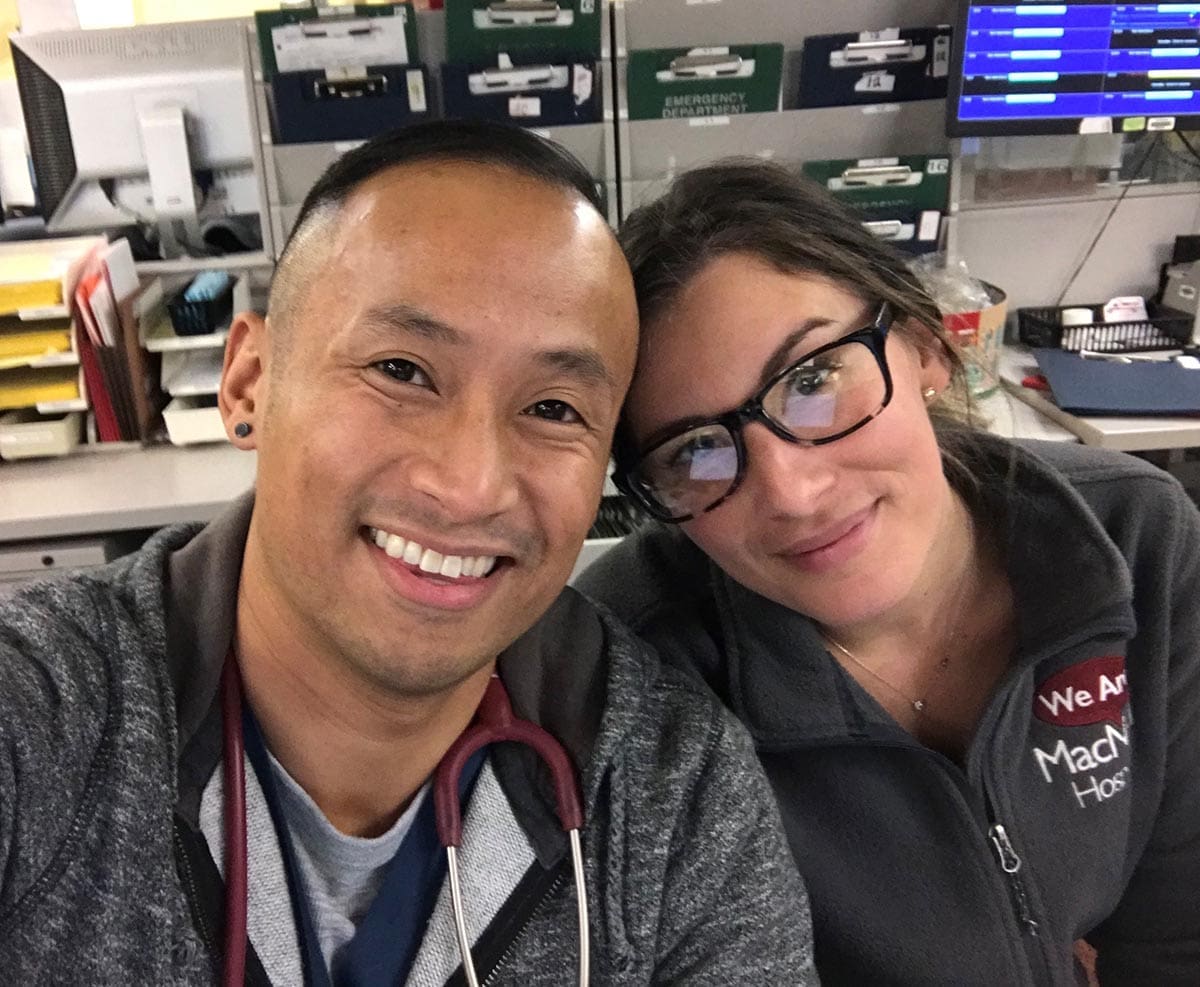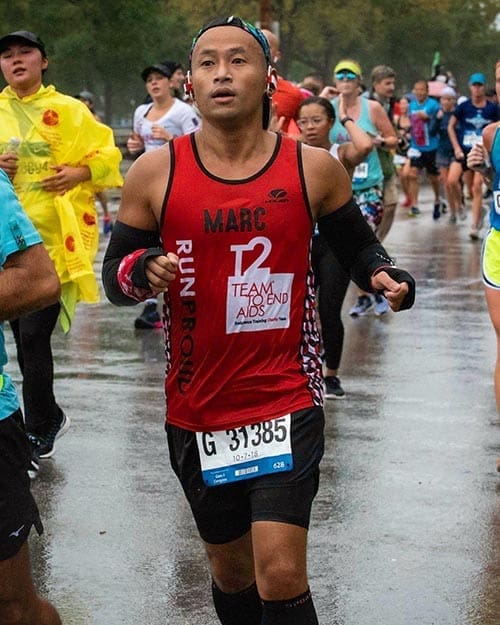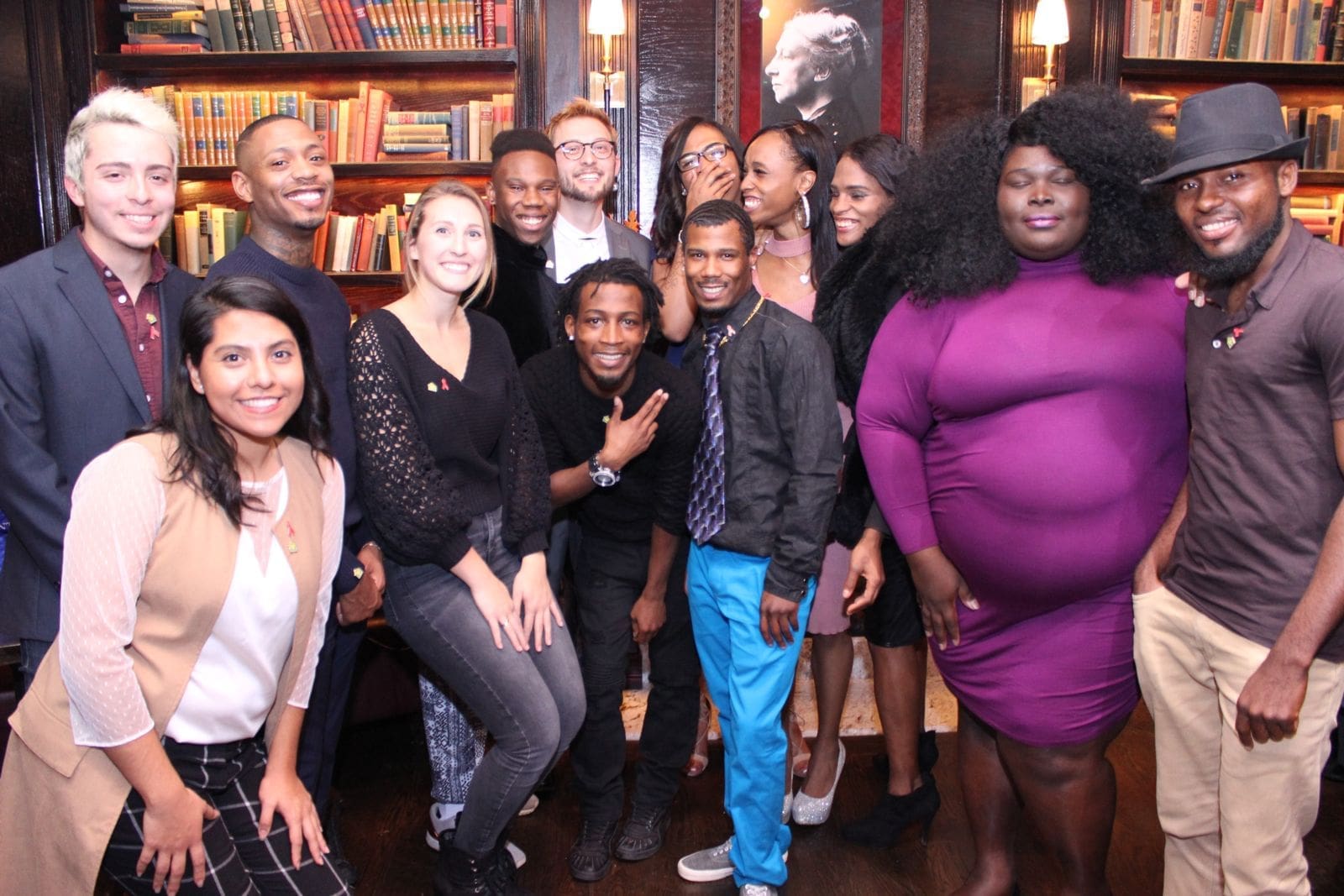By Bailey Williams

A 26-year-old pregnant woman started experiencing sinus-related symptoms and assumed it was pneumonia. Instead, she tested positive for the new coronavirus (COVID-19) and had to be intubated at MacNeal Hospital in Berwyn, Illinois. An older woman in the same hospital also tested positive for COVID-19 but begged to not receive a breathing tube. If it came to that, she wanted the intubation tube to be saved for someone younger.
“It can be very overwhelming when you see such a wide array of people coming in,” said Marc Querol, an emergency room (ER) trauma nurse at MacNeal Hospital and an athlete on TEAM TO END AIDS (T2), an endurance training charity team that has raised more than $12 million for AIDS Foundation Chicago (AFC) and other HIV-related charities.
Having worked as an ER trauma nurse for five years, Marc was used to seeing a variety of ailments amongst people of all age groups in a busy 12-hour shift. Despite that prior experience, Marc said COVID-19 has created a busier work environment with new protocols that many working in health care have never seen or experienced.
As the Centers for Disease Control and Prevention (CDC) announced new guidelines, Marc’s ER changed in accordance with the updated recommendations. Hospital attire adapted to include special masks, gowns and protective eyewear. Questionnaires are distributed to gauge the likelihood of someone’s exposure to the new coronavirus. Parts of the ER are also blocked off for different presentations of a person’s breathing. For example, if someone comes in with an asthma attack or shortness of breath, there are new guidelines to care for that individual in the allotted areas.
So far, during all of Marc’s shifts, the hospital has had enough gear and resources to protect staff and test people who come in with COVID-like symptoms. Still, the hospital continues to monitor its supply on a day-to-day basis.
“If we have the supplies for the day, we preemptively plan, ‘do we have enough tubes for intubation for the next day,’” Marc said. “‘If we run out of these supplies, what are our next steps? Can we re-sterilize something that used to be disposable, but now can’t be disposable?’ There’s a consistent process of adapting day-to-day.”
In this changing, hectic ER, there’s a sense of unease, as health care workers try to balance caring for patients and themselves, Marc said. Before patients are brought into a room, staff coordinate to limit contact between patients presenting COVID-like symptoms and nurses and doctors. The time spent in each room is carefully monitored.
Outside of those rooms, staff work to support and encourage each other. One of Marc’s coworkers is a single mom who’s pregnant and working the overnight shift. Being away from her children has been challenging, so colleagues like Marc make sure she’s able to take a break and FaceTime her kids.
“We’ve had such great support from each other, from the doctors, from our families,” Marc said. “We try our best to keep each other in a positive mindset so that we can be able to not only take care of the patients that are coming in but take care of each other, because for some of us these are the only interactions we have with other individuals outside of our family.”
Marc lives alone in Uptown, but has a strong relationship with his father, who lives nearby. Recently, his father, who works as a medical biller, tested positive for COVID-19.
“It’s a challenge to work and make sure I’m okay and to make sure my dad has the resources he needs to get through his own self-quarantine,” Marc said. “It’s a challenge to find a balance of being who I am professionally and personally.”
One of the coping strategies Marc has turned to is running. Marc goes on short runs around his neighborhood, which sometimes is just a loop around the block. He was training for three marathons this year: one was cancelled, and the others have switched to virtual events. The runs not only help him cope with COVID-19-induced stress but also raise funds through T2 that provide support and vital services for people living with HIV and AIDS.

Marc lives with asthma, so running long distances, like the 26.2 miles that comprises a marathon, posed a unique challenge for him at the start of his running journey. Still, he found adequate support and a family with T2, he said. Marc has run marathons and raised money with the team since 2017.
“Finding a group of people that have been encouraging and uplifting, you feel this, more than just camaraderie, you feel like they are more than just friends; they’re like your family,” Marc said. “T2 has been very helpful in that part of my life and my running journey.”
Early into Illinois’ stay-at-home order, T2’s Director Jonathan Harris reached out to Marc and another athlete who is also working on the front lines of the current public health disaster. Jonathan called to make sure both athletes were okay, given their jobs. Small check-ins like that mean a lot to health care workers like Marc.
“Sometimes it can be overwhelming, but if someone just sends a text and just checks on you, it goes so far,” Marc said.
Marc said some people have also sent food to the hospital to make sure nurses and doctors eat, but sometimes, the shifts are so hectic amid the current crisis, that nurses can’t stop to eat during a 12-hour shift. Still, the support from T2 and those who send food help nurses like Marc feel like “we are all working together.”
For those who aren’t working on the front lines, you can do your part by staying at home and taking care of your health, Marc said. If you are asymptomatic, you could contribute to the spread of COVID-19 without even knowing it. So, if you can, stay home, Marc said.
“You don’t have to work in health care to be part of this (fight to end COVID-19),” Marc said.
If you need resources to shelter-in-place, check out AFC’s comprehensive COVID-19 Resource Center. If you are a person living with HIV or are on PrEP and need financial assistance or other services, call the HIV Resource Hub (844-HUB-4040), a collaboration with AFC and the Center on Halsted.
To learn more about the endurance training charity team T2, visit its website here.

